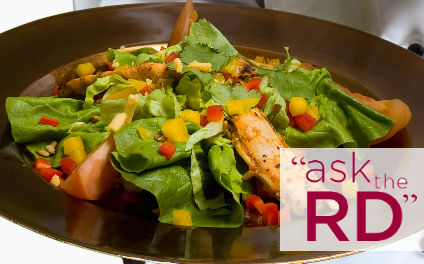For the average individual who doesn’t have celiac disease or a sensitivity to gluten, following a gluten-free diet is probably not necessary.
Q: Will going gluten-free help me lose weight?
A: The demand for gluten-free products is growing, and many consumers might find themselves at the grocery store wondering if they should purchase the gluten-free alternative to favorite foods. A gluten-free diet is prescribed for those who have celiac disease or a sensitivity to gluten. For these individuals, following a gluten-free diet will alleviate painful symptoms like stomach cramping, diarrhea, and bloating. Those with celiac disease who begin to follow a gluten-free diet could potentially gain weight (especially if they had been underweight) because they are finally able to absorb the nutrients they are consuming.
As for the average individual who doesn’t have celiac disease or a sensitivity to gluten, following a gluten-free diet is probably not necessary. Some people might attribute successful weight loss to following a gluten-free diet. But the weight loss might have occurred simply because certain food items, such as breads, pastas, cakes and cookies made from wheat, rye and barley, are eliminated on a gluten-free diet. At its core, a gluten-free diet is full of healthy whole foods, including fruits, vegetables, protein and whole grains, like brown rice and quinoa. However, purchasing an entrée at a restaurant or a processed food item at the grocery store that is gluten-free does not confer any benefits for your waistline.
If you need to follow a gluten-free diet, there are many Healthy Dining restaurants that offer gluten-free menus, such as Outback Steakhouse, Chilis and Red Robin

